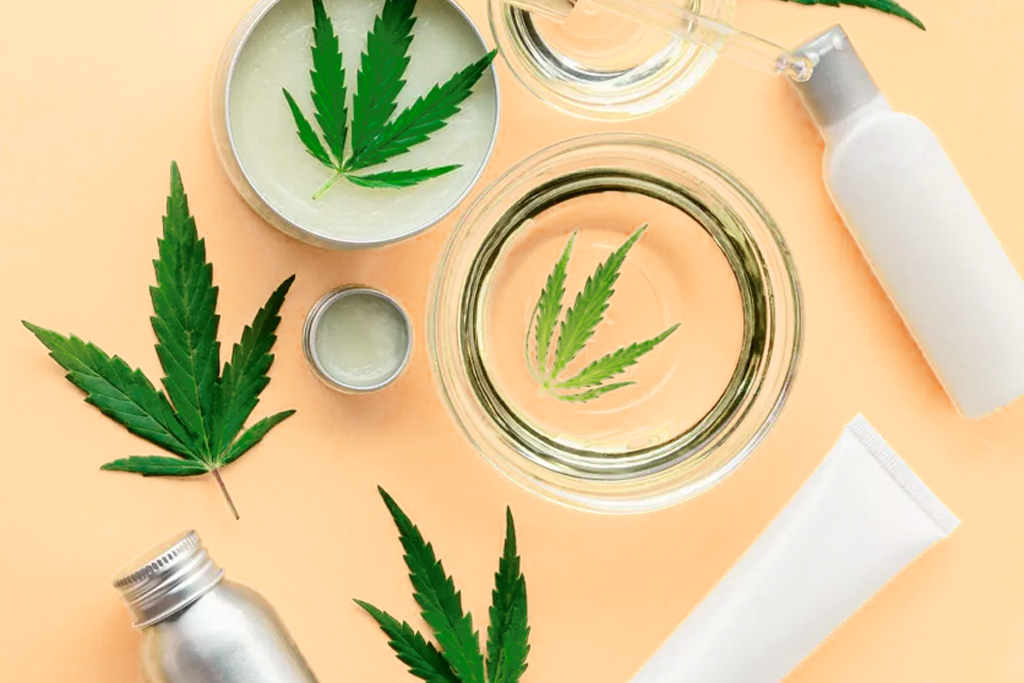THC-A and Delta-9 THC differ primarily in psychoactivity, activation, therapeutic potential, and legality. Delta-9 is the compound responsible for cannabis’ well-known high. THC-A is non-psychoactive in its original form and converts to psychoactive Delta-9 THC through heating, like smoking or vaping. Legally, THC-A products are readily available due to the Federal Farm Bill’s legalization of hemp. On the other hand, Delta-9 THC is far more regulated and is only legal in certain states.
This article examines THC-A vs Delta 9 in terms of psychoactive effects, activation, and therapeutic potential. It also explores extraction, production, side effects, and distinctions in legal status.
Psychoactive Effects
THC-A and Delta-9 THC offer distinct psychoactive experiences due to differences in their chemical structure.
THC-A
THC-A is the acidic form of Delta 9 THC that appears prominently in hemp and cannabis plants. It doesn’t produce a high in its original state. Instead, it delivers anti-inflammatory benefits without altering your perception, focus, or mental clarity. However, THC-A does have powerful psychoactive potential. When you heat THC-A through smoking, vaping, or cooking, it drops its acidic profile and converts to Delta-9 THC (regular THC). This process makes you feel high, just like regular weed.
Delta 9
Delta-9 THC is the primary psychoactive compound responsible for the traditional “high” you associate with cannabis. This compound binds seamlessly with your brain’s cannabinoid receptors, inducing a mood boost, relaxation, altered sensory perception, and sometimes increased anxiety or paranoia, depending on the dose and your sensitivity. Delta-9’s psychoactive effects also contribute to relief from pain, nausea, and mental health symptoms.
Usage and Consumption Methods
You can consume THC-A and Delta-9 THC through similar methods that offer unique effects depending on the experience you’re looking for.
- THC-A: When you want the wellness benefits of THC-A without the high, you can enjoy it raw in smoothies, tinctures, or capsules. When you want to get high, you can smoke THC-A flower, vape THC-A concentrates, or make homemade edibles using high-THC-A hemp buds.
- Delta9 THC: With Delta-9 THC, you’ll find more options for rapid psychoactive effects, including edibles, concentrates, oils, and vape cartridges. You can also smoke or vape your favorite cannabis strain.
Vaping or smoking provides rapid, short-term effects, while oils and edibles deliver a longer, more gradual high.
Decarboxylation and Activation
THC-A and Delta-9 are unique in how you consume them to activate your desired effects.
- THC-A: You don’t need to activate THC-A to experience its wellness benefits. However, if you want to get high, you must apply heat through smoking, vaping, or cooking the compound. Heating THC-A initiates decarboxylation, a chemical process that removes a carboxyl group from the molecule. This reaction transforms THC-A into Delta-9 THC so it can bind to cannabinoid receptors in the brain that deliver the psychoactive effects you seek.
- Delta-9 THC: Delta-9 THC products do not require additional activation to deliver psychoactive effects. You can consume Delta-9 THC directly through edibles, oils, and concentrates, which are already decarboxylated. Smoking or vaping hemp or cannabis flower also delivers Delta-9 effects by activating the naturally abundant THC-A, which instantly converts to Delta-9 THC when exposed to heat.
THC-A vs. Delta 9: Therapeutic Benefits
THC-A and Delta-9 THC offer different therapeutic benefits based on their unique properties.
- With THC-A, you can target inflammation, nausea, and chronic inflammatory pain without experiencing a high. Researchers are also exploring unheated THC-A for neuroprotective properties that could help with arthritis and neurodegenerative diseases. On the other hand, heated THC-A provides all the same therapeutic benefits as Delta 9.
- Delta-9 THC is widely recognized for relieving pain, improving mood, stimulating appetite, and promoting better sleep. Fans report that its psychoactive effects help with issues like PTSD, anxiety, and insomnia.
Both cannabinoids have important therapeutic roles. However, THC-A is more versatile, while Delta 9 is strictly psychoactive.
Legal Status Comparison
THC-A, when derived from hemp, is generally legal under federal law, while Delta-9 THC remains more restricted.
- THC-A is federally legal under the 2018 Farm Bill as long as the hemp source contains less than 0.3% Delta-9 THC by dry weight. This ruling allows high-THC-A products to be sold across the U.S., given they stay within the Delta-9 threshold. The DEA recently clarified that high-THC-A hemp products may not be compliant due to decarboxylation. However, THC-A is still accessible in most states.
- Delta-9 THC faces stricter regulations as a Schedule I substance under federal law. This designation means that Delta 9 is illicit unless it comes from federally regulated hemp plants or from cannabis in states with legal medical or adult-use programs. Regulations may place limits on Delta 9 concentration, forms, and distribution. If you’re purchasing Delta-9 products, know your state’s rules.
THC-A vs. Delta 9: Extraction and Production
THC-A and Delta-9 THC require distinct methods of extraction and production. THC-A production focuses on preserving the compound in its raw state, while Delta-9 THC production emphasizes activation through decarboxylation.
- THC-A Extraction: Manufacturers typically extract THC-A from fresh or lightly dried cannabis or hemp plants to preserve the compound in its non-psychoactive form. Methods like cold-press extraction or cryogenic freezing prevent decarboxylation, allowing THC-A to remain in its natural acidic state. THC-A extractions, such as live resin or raw cannabis concentrates, capture the cannabinoid’s full-spectrum benefits, including other terpenes and minor cannabinoids.
- Delta-9 THC Extraction: Extracting Delta-9 THC usually involves decarboxylation, where heat or time triggers THC-A to convert into Delta-9 THC. After this transformation, extraction techniques like CO₂ extraction or hydrocarbon-based methods isolate Delta-9 THC for use in oils, edibles, and concentrates. Delta-9 THC products, such as distillates, isolates, and edibles, are crafted to deliver consistent, activated effects as the decarboxylation process is completed before consumption.
Potential Side Effects
THC-A’s side effects remain minimal and non-psychoactive unless it’s heated and converted to Delta-9 THC. Delta-9, however, carries more pronounced mental and physical effects that can be either therapeutic or overwhelming, depending on the user’s tolerance and dose.
- THC-A Side Effects: THC-A, in its non-psychoactive form, generally has mild side effects and is considered safe for most users. Some people may experience slight digestive issues, dry mouth, or fatigue after consuming THC-A in raw or cold-pressed forms. Since THC-A doesn’t produce the “high” associated with Delta-9, it typically doesn’t cause anxiety or paranoia. However, once heated, THC-A converts to Delta-9 THC, which introduces a new range of psychoactive effects.
- Delta-9 THC Side Effects: Delta-9 THC, with its well-known psychoactive properties, can produce a range of side effects that impact both physical and mental states. Common side effects include dry mouth, red eyes, increased heart rate, and drowsiness. On the mental side, some users report euphoria and relaxation, while others may experience anxiety, paranoia, or mood swings, especially in high doses or among new users. Delta-9 THC may also impair motor skills and reaction time, making it unsafe to drive or operate machinery under its influence.
Comparing Effectiveness and Suitability in Medical Needs
THC-A and Delta-9 THC serve different medical needs based on their psychoactive properties and how they work in the body.
- Unheated THC-A is better if you’re looking to target inflammation, arthritis, or neurodegenerative issues without the psychoactive effects of Delta-9 THC. Studies show that THC-A’s anti-inflammatory properties may relieve joint pain and stiffness in arthritis, while its neuroprotective effects could offer supplemental support for conditions like Parkinson’s and ALS.
- Delta-9 THC might be better if you seek pain relief, appetite stimulation, and anti-nausea effects, particularly for chronic pain conditions, cancer, or chemotherapy side effects. You might also consume Delta-9 for anxiety and insomnia due to its ability to promote relaxation and elevate mood.
Which Compound is Right for You?
Choosing between THC-A and Delta-9 THC depends on your desired effects, tolerance, and medical needs. THC-A is ideal if you want the wellness benefits of cannabis without getting high. It’s also ideal if you live in a state without access to legal cannabis because smokable THC-A hemp products are generally permissible nationwide. Delta-9 THC may be the right choice if you live in a legal state and need stronger, more immediate effects for pain, anxiety, or mood elevation.

Elena Schmidt 
Writer
Elena Schmidt is a writer, entrepreneur, and yoga teacher in Austin, Texas. She holds a journalism degree from the University of Miami and spent nearly a decade in editorial and content management for the health and beauty sectors. Today, Elena runs a boutique content marketing agency targeted towards brands that matter. Elena has found her passion supporting industries like plant medicine, cannabis, psychedelics, and wellness. She has written countless articles on these subjects and is passionate about spreading the word to those who need it most.

